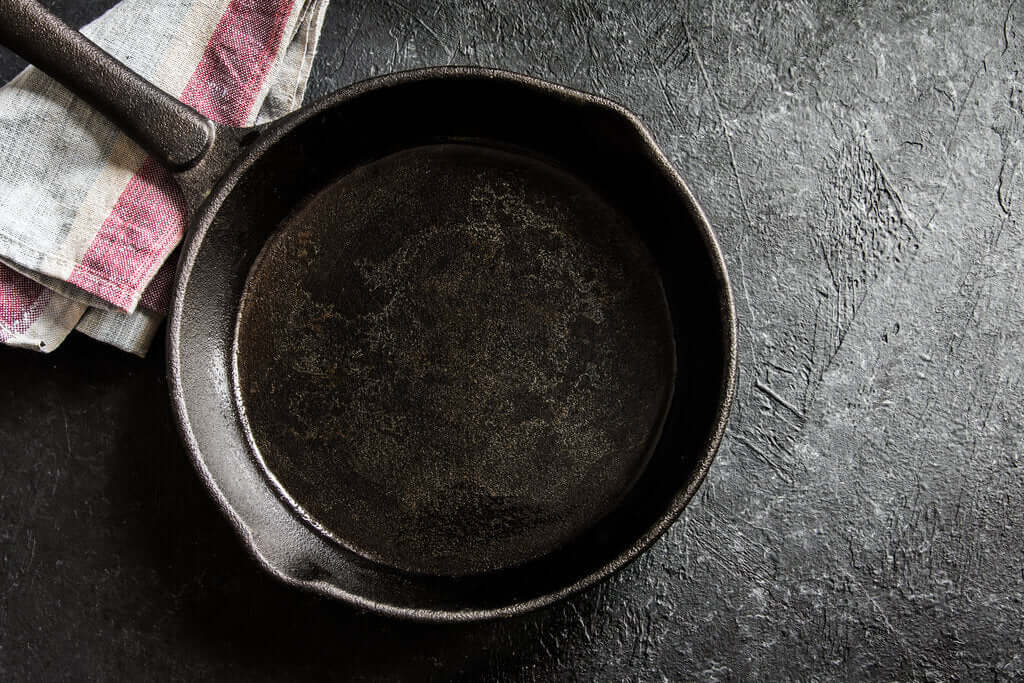10 Foods You Should Never Cook in a Cast Iron Skillet – Save Your Pan!
1. Acidic Ingredients (Tomatoes, Vinegar, Citrus)
Why Avoid? Acidic foods like tomato sauce, vinegar, wine, or lemon juice can strip your pan’s seasoning and react with the iron, leaving a metallic taste in your meals.
Alternative: Cook acidic dishes in stainless steel, enamel-coated, or nonstick pans. If you must use cast iron, limit cooking time and re-season afterward.
2. Delicate Fish and Seafood
Why Avoid? Fragile fish such as tilapia, sole, or flounder tend to stick even on well-seasoned cast iron, creating a messy cleanup and ruining presentation.
Alternative: Use nonstick or grill pans for thin fish. Heartier fish like salmon or tuna steaks are better suited for cast iron.
3. Eggs (Without Perfect Seasoning)
Why Avoid? Eggs are notorious for sticking unless your skillet is flawlessly seasoned, making frying or scrambling a challenge.
Alternative: Opt for nonstick or stainless steel pans for eggs. Reserve cast iron for baked egg dishes like frittatas.
4. Sticky Sweets (Caramel, Cookies)
Why Avoid? Sugary treats can cling to the surface, complicating cleanup and harming the seasoning.
Alternative: Nonstick bakeware or silicone mats are perfect for sticky desserts. Use cast iron for robust baked items like skillet brownies or cornbread.
5. Strong-Flavored Foods (Garlic, Onions, Fish)
Why Avoid? The porous nature of cast iron absorbs intense flavors, which can linger and mix with future dishes.
Alternative: Use stainless steel or glass cookware to prevent flavor transfer.
6. Dairy-Based Sauces
Why Avoid? Creamy sauces may scorch or curdle due to uneven heating or residual iron.
Alternative: Non-reactive or enamel-coated pans are ideal for cream-based recipes.
7. Frozen Foods
Why Avoid? Adding frozen items to a hot cast iron pan can cause thermal shock, damaging the skillet and making food stick.
Alternative: Thaw foods first or choose cookware that handles sudden temperature changes better.
8. Rice and Risotto
Why Avoid? Cast iron can heat unevenly, making rice or risotto difficult to cook without sticking.
Alternative: Heavy-bottomed saucepans or Dutch ovens produce consistent results.
9. Long-Simmered or Marinated Foods
Why Avoid? Extended exposure to liquids can break down the seasoning and leave a sticky residue.
Alternative: Use Dutch ovens or stainless steel pots for slow-cooked recipes.
10. Raw Dough (Without Sufficient Oil or Fat)
Why Avoid? Dough can cling stubbornly to cast iron if not enough fat is applied.
Alternative: Generously grease the pan or use parchment paper for baking pizza, bread, or pastries.
Bonus Cast Iron Care Tips
- Limit Soap: Mild soap is fine, but harsh detergents can ruin the seasoning. Hot water and a stiff brush are best.
- Avoid Soaking: Dry immediately after washing to prevent rust.
- Re-Season Often: After cleaning, apply a thin layer of oil and heat briefly to maintain the nonstick surface.
